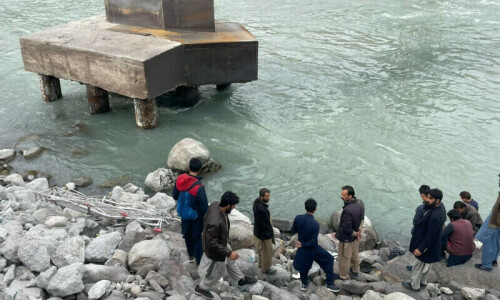 TO get the maximum profit out of the poultry farming business, the birds should be free from all types of stress. Nowadays, poultry is facing stress of harsh cold weather which needs proper management of temperature, humidity, litter, ammonia, feed, water, light and ventilation etc. These are of much importance while managing a flock as they affect its health and production.
TO get the maximum profit out of the poultry farming business, the birds should be free from all types of stress. Nowadays, poultry is facing stress of harsh cold weather which needs proper management of temperature, humidity, litter, ammonia, feed, water, light and ventilation etc. These are of much importance while managing a flock as they affect its health and production.
It is totally a different matter to manage a flock in winter than in summer. The flow of wind is kept minimal to avoid heat loss. But at the same time, removal of moisture and ammonia becomes a serious problem. All these factors are interrelated in one way or the other. So while considering one factor, the other should also be reviewed.
The birds, being homoeothermic species like man, maintain their body temperatures constant round the year. During the winter, the temperature must be hot enough so that birds feel comfortable. One should be vigilant to provide the environmental temperature according to their requirements.
The first thing is the insulation of the house. An insulated house provides opportunity of controlling cold air inside the shed. Walls give better insulation than open-sided house having curtains. One must ensure that there are no holes, cracks and crevices in the wall or roof from where air may enter. The pads must be sealed with some plastic or polythene sheets.
The temperature is of much importance even before the arrival of chicks. One must say that optimum temperature requirements are more important for young chicks than older ones because older birds are better insulated with feathers, have less surface area and produce more heat than young chicks. For the day-old chicks, the shed should be pre-heated one to two days before the arrival of chicks. If it is not, the air and the litter will absorb heat from the bodies of the chicks and the birds may start shivering with cold. This will affect the growth of the birds.
The other thing is uniform distribution of temperature.The behaviour of the birds is a good parameter to assess whether the temperature is uniform in the whole shed or not. If the birds huddle close to the heating source, it indicates cold environment. In some situations, the birds are found in patches, called as ‘comfort zones’. The formation of comfort zones should be avoided by constant circulation and re-circulation of air.
The litter is required to be managed efficiently because it gets wet quite easily with water coming from loose water pipe connections, drinkers, droppings and roof. This will result in cake formation in the litter which becomes good medium for anaerobic bacterial growth and ammonia production.
Normally litter moisture is maintained with in the range of 25-35 per cent. The heating and ventilation systems must be continuously monitored to ensure optimum level of moisture. Wetting of litter is further prevented by quality feed and water. Feed containing high quantities of wheat and barley, and water having high percentage of minerals like sodium, magnesium and chloride make the droppings soft that add up the moisture of the litter. If litter gets too much wet and there is cake formation then it is better to replace it.
Another issue of increasingly concern is production of bad odour, especially in the farms close to population. It is also an outcome of wet litter. If the litter is kept dry and there is an efficient ventilation system, this problem is automatically solved. Low pH also retards the degradation of the organic matter.
Cold weather ventilation or winter ventilation is totally a new chapter as compared to the hot day’s ventilation. Farmers find it a nightmare to control ventilation in winter. Just look at the following points to control your cold weather ventilation.
Proper insulation and sealing of the shed is a prerequisite. The fans should be operated at their minimum capacity to contain maximum heat inside the shed. If this minimum ventilation is not provided, the inside air quality will deteriorate.
Increase the ventilation rate according to the age. Ventilation rate may be further increased if there is ammonia or wet litter problem. If ventilation rate is increased, add some heat in the air. If the house is hot, just adjust the addition of heat but don’t tune the fan because fans are required for removal of moisture and ammonia.
If litter gets dusty, decrease the ventilation rate, because extra dry litter may result in respiratory problems in the birds. Fresh air coming in should be mixed well with warm air before reaching the birds. Additional fans can be used to recalculate the warm air to save the cost. Furthermore, the maintenance of caloric values in the feed also needs high consideration. Poultry feed should have high caloric value as compared to feed offered in summer season, such type feed keeps the birds warm.
With reference to laying birds, one thing very important is light management. Naturally, birds go on molting in short days i.e. in winter. The process of natural molting takes about four months and hence the birds go out of production. In such circumstances, it is very much important to give extra dose of light to keep them in production. In literature, light duration of 14-16 hours is recommended.
Last but not the least is the general health of the birds, because the birds with good body condition and free of diseases can perform better and develop resistance to harsh seasons.











































Dear visitor, the comments section is undergoing an overhaul and will return soon.